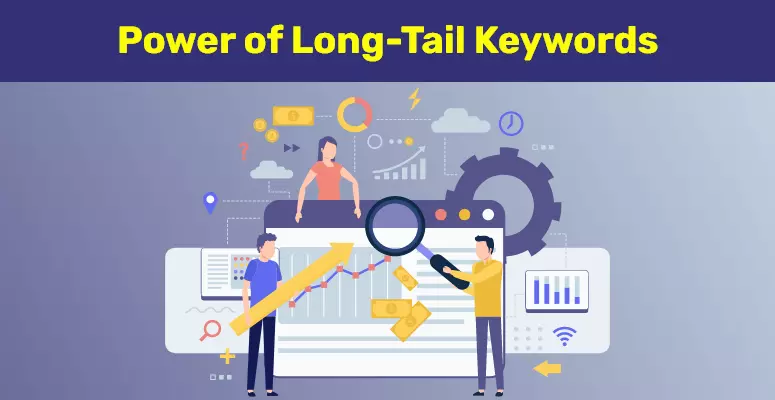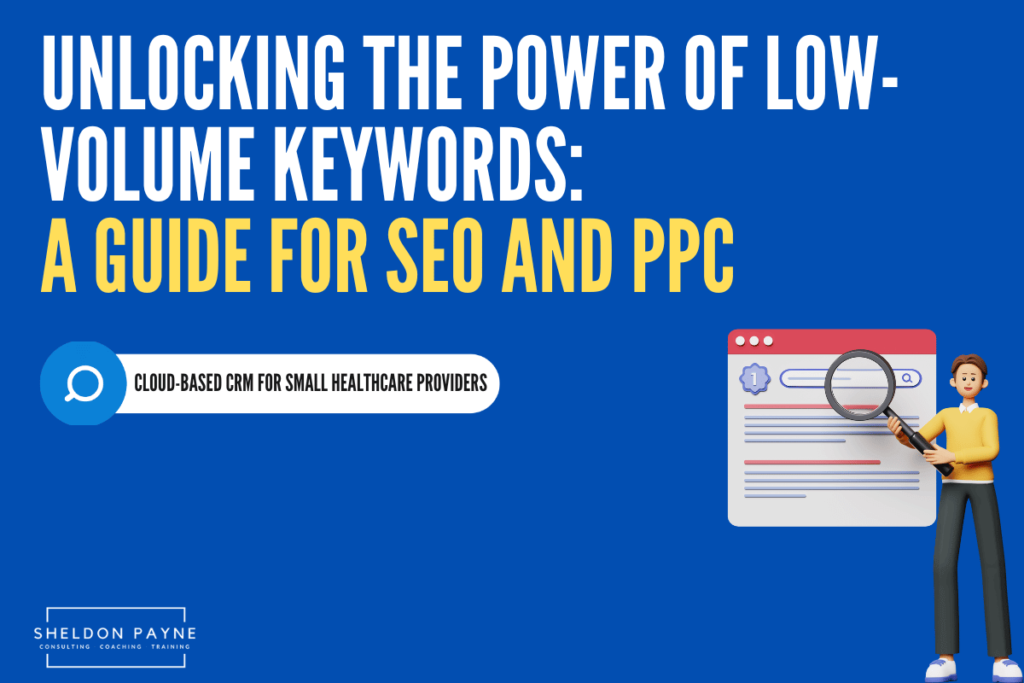Have you ever wondered how search engines find the most relevant results for your queries? It all comes down to the power of keywords. Keywords are the key (pun intended) to unlocking the vast amount of information available on the internet. From finding the best restaurants in your area to researching the latest trends, keywords play a crucial role in determining what information is presented to you. In this article, we will explore the importance of keywords and how they can help you navigate the digital world more effectively. So, buckle up and get ready to discover the untapped potential of keywords!
The Importance of Keywords
Keywords are an essential component of search engine optimization (SEO) and play a crucial role in determining the visibility and ranking of websites on search engine result pages (SERPs). By strategically incorporating relevant keywords into your website content, you can attract targeted traffic, increase your online presence, and ultimately drive more conversions. In this article, we will explore the various types of keywords, the process of conducting keyword research, the impact of keyword trends and seasonality, best practices for keyword density and placement, on-page and off-page optimization techniques, monitoring and analyzing keyword performance, and adapting to algorithm updates.
Types of Keywords
Short-tail Keywords
Short-tail keywords are brief, concise phrases that typically consist of one or two words. These keywords are often broad and general in nature, attracting a large volume of search traffic. However, due to their broadness, short-tail keywords tend to have higher competition levels, making it challenging to achieve top rankings. For example, a short-tail keyword could be “shoes.”
Long-tail Keywords
In contrast to short-tail keywords, long-tail keywords are longer, more specific phrases that usually consist of three to five words. They target a narrower audience and aim to capture users who have a more refined search intent. Although long-tail keywords may generate lower search volumes compared to short-tail keywords, they often possess higher conversion rates due to their relevance. For instance, a long-tail keyword could be “running shoes for beginners.”
Branded Keywords
Branded keywords are specific to a particular brand or company. These keywords include the brand name and are used to attract potential customers who are already familiar with the brand or are actively searching for it. A branded keyword could be “Nike shoes.”
Generic Keywords
Generic keywords are broad, non-branded terms that are not specific to any particular brand or company. These keywords typically have high competition levels and may result in a lower conversion rate due to the lack of specificity. An example of a generic keyword could be “running shoes.”
Geo-targeted Keywords
Geo-targeted keywords are location-specific terms that include geographic locations, such as cities, states, or countries. These keywords are particularly useful for businesses or websites serving a specific geographic region. Implementing geo-targeted keywords can help attract local traffic and generate more relevant leads. For example, a geo-targeted keyword could be “New York City restaurants.”

Conducting Keyword Research
Keyword research is a fundamental step in the SEO process and involves identifying the most relevant and effective keywords for your business or website. Several tools are available to assist in this process, such as Google Keyword Planner, SEMrush, and Ahrefs. These tools provide valuable insights into search volume, competition levels, and suggest related keywords that may be worth considering.
Another effective method for conducting keyword research is by analyzing competitors’ keywords. By examining the keywords your competitors are using, you can gain insights into their strategies and identify potential opportunities to differentiate yourself. Tools like SEMrush and SpyFu can help uncover the keywords your competitors are ranking for and provide valuable data to inform your own keyword strategy.
When conducting keyword research, it is important to focus on relevance. Identify keywords that align with your business goals, target audience, and the content you will be producing. This will ensure that the keywords you choose are highly targeted and likely to drive quality traffic to your website.
Keyword Trends and Seasonality
Staying up-to-date with keyword trends is critical for maintaining a competitive edge in the ever-evolving digital landscape. Keyword trends refer to the changes in search volume and popularity of specific keywords over time. By monitoring these trends, you can identify emerging keywords and capitalize on new opportunities. Tools like Google Trends can provide insights into the popularity of keywords and their seasonality.
Seasonality also plays a significant role in keyword optimization. Some keywords may see fluctuations in search volume depending on the time of year, holidays, or other seasonal factors. By adapting your keyword strategy to align with these trends, you can maximize the visibility of your website during peak periods and optimize your content for increased traffic and conversions.

Keyword Density and Placement
Keyword density is a measure of the number of times a keyword appears within a piece of content compared to the total word count. While there is no specific numerical benchmark for an ideal keyword density, it is generally recommended to maintain a natural balance. Overusing keywords can result in keyword stuffing, which may lead to penalties from search engines. On the other hand, underutilizing keywords may reduce the overall SEO effectiveness of the content.
Optimizing keyword placement within website content is another crucial aspect of SEO. Keywords should be strategically placed in key areas, such as the title tag, headings, subheadings, and the body of the content. This signals to search engines that the content is relevant to the targeted keywords and improves the chances of ranking higher in search results.
It is essential to ensure that keyword placement is organic and does not compromise the readability and user experience of the content. Search engines, such as Google, are increasingly prioritizing user-centric metrics, such as bounce rate and time on page, when evaluating website quality. Balancing keyword optimization with a seamless user experience is, therefore, crucial for long-term success.
On-Page Optimization
On-page optimization involves optimizing various elements within a webpage to improve its visibility and relevance to search engines. Incorporating keywords into meta tags, such as the title tag and meta description, helps search engines understand the topic of the page and can significantly impact its ranking. These tags should accurately reflect the content and include targeted keywords for maximum optimization.
Keywords can also be optimized within headings and subheadings. These are HTML tags that structure the content and provide a clear hierarchy. Including keywords in headings and subheadings not only helps search engines understand the content better but also enhances the user experience by providing clear and concise information.
Adding keywords to image alt text and filenames is another on-page optimization technique. This helps search engines understand the content of images and can drive additional organic traffic through image searches. Incorporating relevant keywords into alt text and filenames can improve the visibility of your website in both text and visual search results.

Off-Page Optimization
Off-page optimization focuses on improving a website’s visibility and credibility through external factors. Building backlinks with keyword-rich anchor text is an effective off-page optimization strategy. Backlinks are links from other websites that point to your website, and anchor text is the text that is clickable and contains a hyperlink. By incorporating relevant keywords into the anchor text of backlinks, you can enhance the authority and relevance of your website in the eyes of search engines.
Leveraging social media platforms can also contribute to keyword optimization efforts. Sharing content on social media channels and including relevant keywords in your posts can help increase the visibility and reach of your content. Additionally, social media engagements, such as likes, comments, and shares, can indirectly improve your website’s search engine rankings.
Guest blogging and link-building strategies are also effective off-page optimization techniques. By contributing valuable content to authoritative websites within your industry, you can establish yourself as an expert and build high-quality backlinks. These backlinks can enhance your website’s visibility and attract targeted traffic, contributing to improved rankings and conversions.
Monitoring and Analyzing Keyword Performance
Once keywords have been implemented and your website is live, it is crucial to monitor and analyze their performance regularly. Tracking keyword rankings allows you to measure the effectiveness of your optimization efforts and identify opportunities for improvement. Various tools, such as Google Search Console and Ahrefs, can provide valuable insights into keyword rankings and their fluctuations over time.
Analyzing keyword conversion rates is equally important. Conversion rates refer to the percentage of website visitors who complete a desired action, such as making a purchase or filling out a contact form. By tracking conversions generated by specific keywords, you can identify which keywords are driving the most valuable traffic and adjust your keyword strategy accordingly.
Using the data obtained from keyword performance analysis, it is essential to make informed decisions and adjust your keyword strategies accordingly. This may involve targeting new keywords, optimizing existing content, or reevaluating your overall SEO approach. By continually refining and improving your keyword strategies based on performance data, you can ensure long-term success and stay ahead of the competition.

Adapting to Algorithm Updates
Search engine algorithms are constantly evolving to provide users with the most relevant and high-quality search results. As a result, it is essential to stay informed about algorithm updates and adapt your keyword strategies accordingly. Major algorithm updates, such as Google’s Panda and Penguin, can significantly impact website rankings and visibility.
To comply with algorithm updates, it is necessary to reassess your keyword strategies periodically. This may involve eliminating outdated or low-performing keywords, optimizing content to align with new ranking factors, or focusing on user-centric metrics to enhance the overall user experience. Balancing keyword optimization with the evolving expectations of search engine algorithms is crucial for maintaining long-term success in the ever-changing digital landscape.
Conclusion
In conclusion, keywords are a fundamental element of SEO that can greatly influence website rankings and visibility. By understanding the various types of keywords, conducting thorough keyword research, and optimizing content through strategic keyword placement, businesses and websites can attract targeted traffic and drive conversions. Monitoring and analyzing keyword performance, adapting to algorithm updates, and continuously refining keyword strategies are also essential for long-term success. By unlocking the power of keywords and implementing effective keyword strategies, you can unlock the full potential of your website and achieve sustainable online success.

Hi, I’m Mike, the author of Ocean Bliss Journeys. Thank you for visiting 🙂

